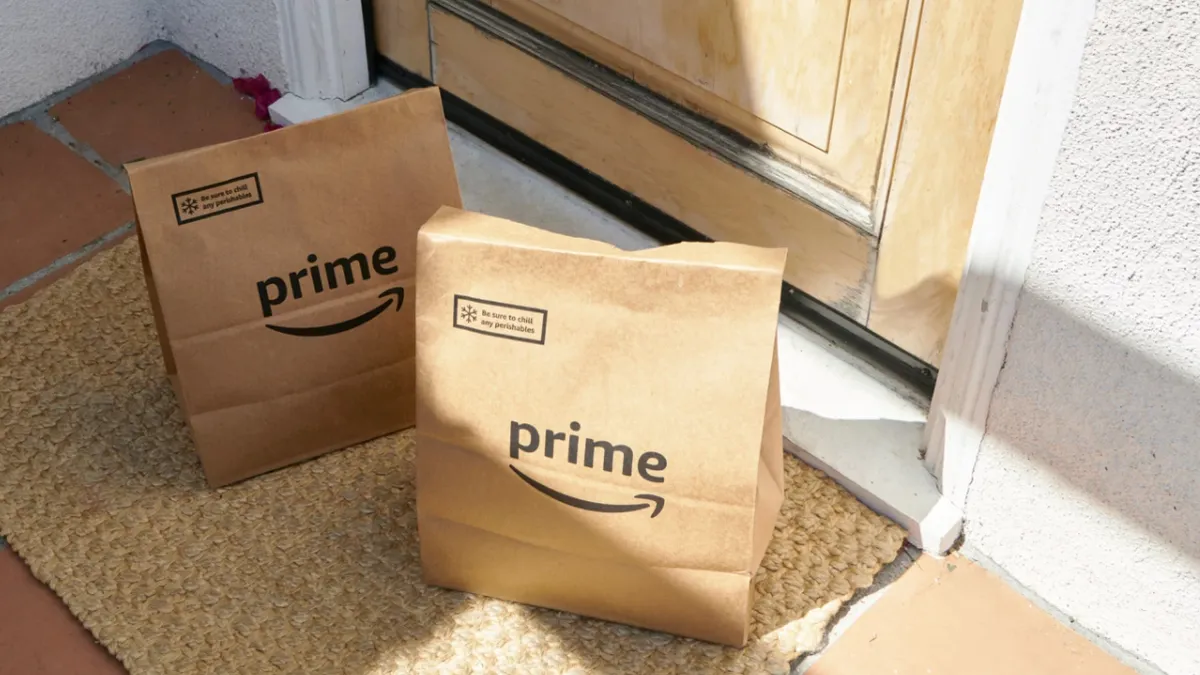Dive Brief:
-
The European Union on Tuesday announced new rules restricting Amazon’s use of its marketplace sellers’ data; enhancing their access to Amazon’s “buy box;” and easing sellers’ and shippers’ participation in Prime. They’re based on commitments the e-retailer offered in July that were made stricter after market testing and public comment conducted through Sept. 9, the E.U. said.
-
Amazon must comply within months, by June 2023, and after that faces fines of up to 10% of its annual revenue or a periodic penalty of 5% per day of its daily revenue for every day of non-compliance. An independent trustee will monitor implementation and compliance, according to an E.U. press release.
-
“We are pleased that we have addressed the European Commission’s concerns and resolved these matters,” an Amazon spokesperson said by email. “While we continue to disagree with several of the preliminary conclusions the European Commission made, we have engaged constructively to ensure that we can continue to serve customers across Europe and support the 225,000 European small and medium sized businesses selling through our stores.”
Dive Insight:
These rules spring from concerns around Amazon’s position as the operator of a third-party marketplace that also competes with those sellers, as described in remarks Tuesday from Margrethe Vestager, the E.U.’s executive vice president and its commissioner for competition.
The political body launched investigations into the e-commerce giant’s business practices starting in 2019, eventually concluding that it “abused its dominance on the French, German and Spanish markets for the provision of online marketplace services to third-party sellers” and “that Amazon's rules and criteria for the Buy Box and Prime unduly favour its own retail business, as well as marketplace sellers that use Amazon's logistics and delivery services.”
The new rules crack open Prime’s formidable structure with four sets of changes, according to Vestager.
First, Amazon will apply “non-discriminatory conditions and criteria for sellers to qualify for the Prime,” regardless of which carrier sellers use; second, marketplace sellers are free to use Amazon’s logistics or independent carriers for Prime deliveries and can negotiate directly with carriers for Prime deliveries; third, “no data generated by the activity of other carriers would flow to Amazon logistics;” and fourth, Amazon won’t keep carriers from contacting the end customer directly to track their parcels.
“This means that by next summer, Amazon will have to end any preferential treatment towards its own retail and logistics operations in Europe,” Vestager said. “So today's decision sets the rules that Amazon will need to play by in the future instead of Amazon determining these rules for all players on its platform. With these new rules, competing independent retailers, carriers and European customers will have more opportunities and choice.”
















